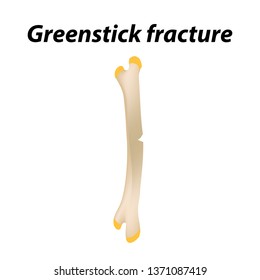Are Chiropractic Adjustments Habit-Forming? Identifying Truth From Misconception
Are Chiropractic Adjustments Habit-Forming? Identifying Truth From Misconception
Blog Article
Material Author-Rode Justesen
You might have listened to that chiropractic care modifications can cause an addictive reliance, but that's a common misunderstanding. Numerous individuals find alleviation without establishing any kind of form of dependency. prenatal chiropractic care to recognize the true function of these modifications and exactly how they suit your overall health and wellness approach. So, just what does the scientific research state about chiropractic treatment and your wellness? Let's explore the facts.
Understanding Chiropractic Adjustments and Their Objective
When you think of chiropractic care modifications, it's vital to understand their purpose and exactly how they work. These adjustments aim to remedy imbalances in your back and joints, promoting far better placement and activity. By using regulated force to details areas, chiropractors aid alleviate discomfort, enhance feature, and boost your total wellness.
Chiropractic treatment focuses on your body's capacity to heal itself, emphasizing the link between the spine and the nerve system. When your spinal column is aligned, it can reduce nerve interference, enabling your body to function efficiently.
Routine modifications might additionally assist stop future concerns, maintaining you active and pain-free. Eventually, chiropractic changes offer to sustain your health, boost mobility, and enhance your lifestyle.
Common Myths Concerning Addiction and Chiropractic Treatment
Many individuals hold false impressions regarding the partnership in between chiropractic treatment and addiction therapy. One common misconception is that chiropractic changes produce an addiction-like dependency. Actually, numerous patients discover remedy for discomfort and discomfort, but this does not suggest they develop a mental or physical dependency.
One more misconception is that chiropractic specialists are simply trying to keep you coming back for more modifications. Most chiropractic specialists prioritize your health and aim for lasting wellness instead of regular brows through.
In addition, some believe chiropractic treatment can change traditional addiction treatments, yet it must match, not substitute, evidence-based treatments. Understanding these misconceptions can help you make notified choices about your health and health without dropping target to misinformation.
The Scientific Research Behind Chiropractic Adjustments and Individual Experience
While some might question the efficacy of chiropractic modifications, an expanding body of research sustains their function in easing pain and enhancing general function.
Research studies indicate that back manipulation can lower discomfort from problems like lower back pain, tension migraines, and neck discomfort. When you undergo chiropractic care, the adjustments intend to recover proper placement, enhancing your body's all-natural recovery abilities.
Several individuals report enhanced mobility and a higher sense of well-being after treatment. In addition, the restorative partnership you construct with your chiropractic physician can enhance your experience, as they provide customized care customized to your needs.
This mix of clinical support and favorable client experiences aids clarify why chiropractic adjustments work for lots of individuals seeking alleviation.
Final thought
To conclude, chiropractic modifications aren't addictive; they're designed to enhance your wellness and promote positive health maintenance. By unmasking functional medical doctor austin bordering dependency, it's clear that these treatments can offer considerable alleviation without producing a cycle of dependency. Embracing chiropractic treatment as a complementary strategy to typical treatments can lead to far better wellness end results. So, if you're thinking about changes, felt confident that they have to do with enhancing your quality of life, not creating a dependence.
